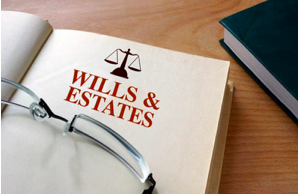 YOU have an estate. Your estate is comprised of everything you own. Your car, home, other real estate, checking and savings accounts, investments… Figuring out the best way to handle your estate can be daunting. This article explains the different types of Estate Planning tools and includes helpful information. We have attorneys and staff at Sebring and Associates who can help you decide how to handle your estate.
YOU have an estate. Your estate is comprised of everything you own. Your car, home, other real estate, checking and savings accounts, investments… Figuring out the best way to handle your estate can be daunting. This article explains the different types of Estate Planning tools and includes helpful information. We have attorneys and staff at Sebring and Associates who can help you decide how to handle your estate.
Estate Planning Guide
To avoid problems in family wealth succession, a successful estate plan should accomplish your objectives.
For a spouse these objectives typically involve:
- To provide a home
- To provide security of income
- To provide business management of property
- To provide for family
- To protect against reckless extravagance
- To provide freedom to manage affairs
- To enable entering or continuing a business
- To protect against the dangers of incapacity
For a child these objectives typically involve:
- To provide for an education
- To protect for life
- To enable to make a career
- To protect against a manipulative spouse
- To enable entering or continuing a business
- To prevent the disposal of wealth
- To provide business management for property
- To provide for family
Under Pennsylvania law, there are various devices to accomplish your estate planning objectives including; will, living will, power of attorney and trusts.
- Will: a document by which a person directs his or her estate to be distributed upon death.
- Living Will: an instrument, signed with the formalities necessary for a will, by which a person states the intention to refuse medical treatment and to release healthcare providers from all liability if the person becomes both terminally ill and unable to communicate such a refusal.
- Power of Attorney: an instrument granting someone authority to act as agent or attorney-in-fact for the person giving or signing the power of attorney.
- Durable Power of Attorney: remains in effect during the grantor’s incompetency; commonly allows an agent to make healthcare decisions for a patient who has become incompetent.
- General Power of Attorney: authorizes an agent to transact business for the principal.
- Irrevocable Power of Attorney: principal cannot revoke.
- Special Power of Attorney: limits the agent’s authority to only a specific matter.
- Trusts: a bifurcated gift whereby one party (the settlor) gives property to a second party (the trustee) to hold and manage for the benefit of a third party (the beneficiary). Title to the property is bifurcated in that legal title is given to the trustee while the beneficiaries hold equitable title. To have a valid trust, the settlor must have the intent to create a trust, the trust must be funded, the trust must have ascertainable beneficiaries and the terms of the trust may have to be in writing. The most frequent use of a trust is to protect a person’s assets after death for the proper care and support of their children and grandchildren, including special needs children, as well as to take care of aging parents.
Probate is the judicial process by which a testamentary document is established to be a valid will. In other words, it is the proving of a will to the satisfaction of the Court. Probate performs three core functions: it provides evidence of the transfer of title to the new owners (clears title); it protects creditors by providing a procedure for payment of debts; and it distributes the decedent’s property to those intended after the decedent’s creditors are paid.
To be clear, a will disposes of a decedent’s probate property only. Most property transferred at death passes outside of probate. However, the decedent must take affirmative steps for property to qualify as non-probate property. A decedent’s non-probate property goes to the transferees identified in the written instrument properly creating the non-probate property arrangement. Historically, four types of such property arrangements qualified:
- Joint Tenancy: joint tenants hold property concurrently in whole and fractional shares. A key characteristic of joint tenancy is survivorship. Upon the death of one joint tenant, the share is extinguished, and the shares of the surviving joint tenant are recalculated. Technically, no property interest passes upon the death of a joint tenant whereas with a tenancy in common the interest is inherited by the cotenant heirs.
- Life Insurance: an agreement between the insured and the insurance company that upon the insured’s death, the benefits will be paid to the beneficiary. The proceeds are not probate property and can be distributed directly to the beneficiaries.
- Legal Life Estates and Remainders: when the party that holds a legal life estate dies, although the right to possession passes to the party holding the remainder, that transfer is the result of the original grantor’s division of the property between the life estate and the remainder. It is not the result of the deceased life tenant passing a property interest. Thus, properly created legal life estates and remainders avoid probate.
- Inter Vivos or Living or Revocable Trust: a trust is an artificial legal entity that holds and manages the property placed in the trust. Of the various types of trusts, only property properly transferred to an inter vivos trust during the life of the party avoids passing through probate.
If the property in question does not qualify as non-probate property, the property automatically falls to probate:
- Will v Intestacy: who takes the decedent’s probate property depends on whether the decedent had a valid will. A properly executed will constitutes expression of a person’s intent as to who should take his or her property when he or she dies. If the decedent does not have a will, or if the will does not dispose of all of the decedent’s property, the property passes through intestacy to the decedent’s heirs.
- Intestacy: if the decedent takes no steps to opt out of intestacy, all his or her property will pass through intestacy.A decedent can opt out of intestacy by properly executing a will or will substitute (one of the recognized non-probate methods of transferring property). If a decedent properly executes a will substitute, property avoids probate. If, however, a decedent opts out of intestacy by executing a will, the property still passes through probate.
DISCLAIMER:
The individuals who provide information for this site work at Sebring & Associates, Attorneys at Law. Any information herein does not constitute legal advice. No attorney-client relationship has been or will be formed by any communication(s) to, from, or as a result of reading this. For legal advice, contact an attorney at Sebring & Associates or an attorney actively practicing in your jurisdiction. Do not send any confidential or privileged information to the writer, as Sebring & Associates assumes no liability or responsibility for it.





